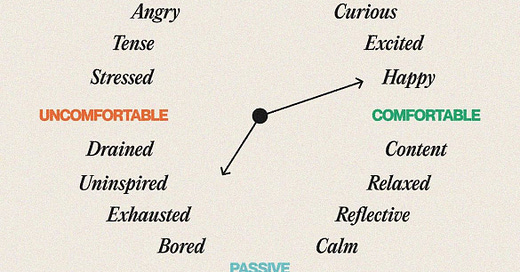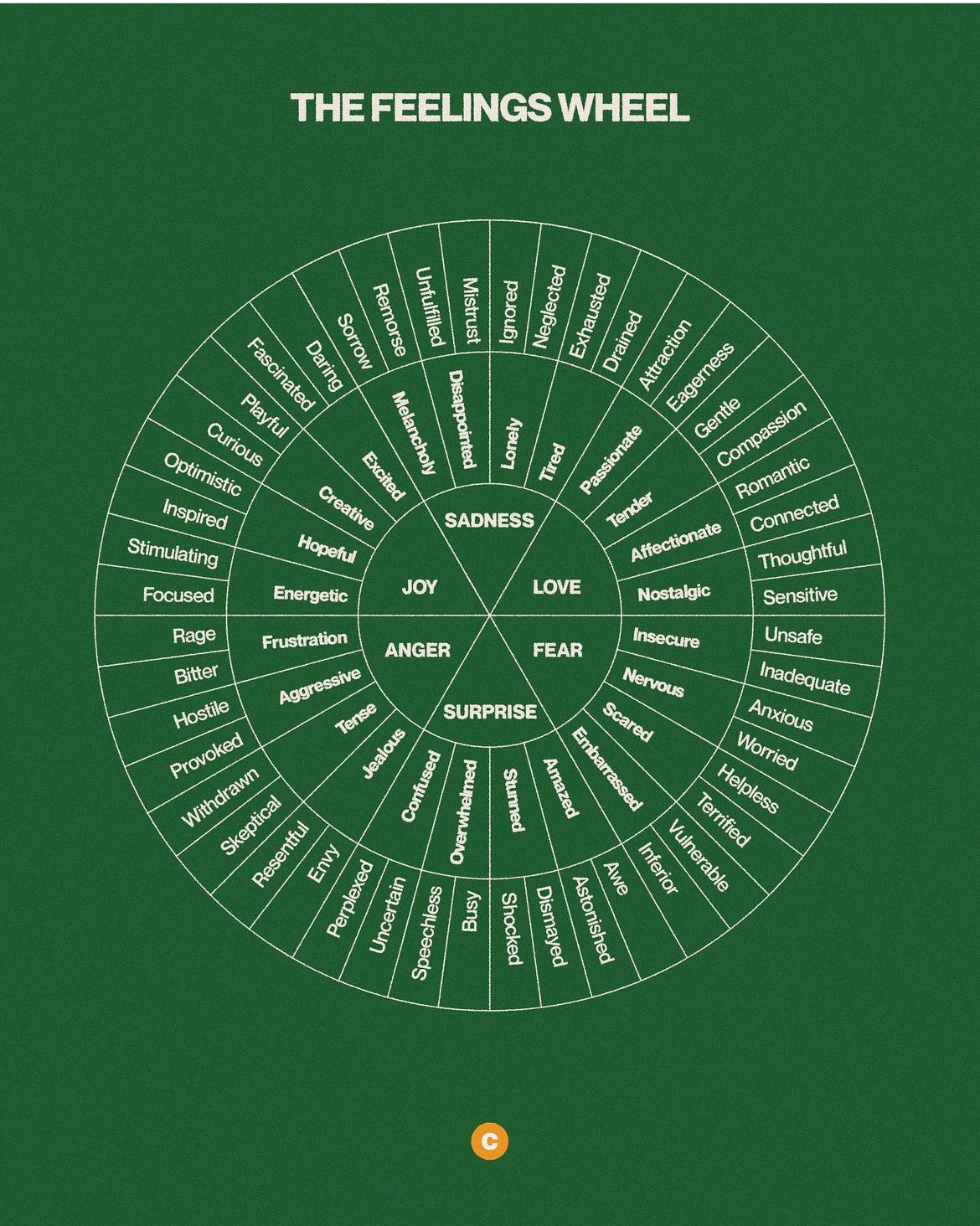Are emotions fueling your growth or hindering it?
Some reflections on the role of emotions in the workplace and four tools to use if you or someone on your team is struggling.
Years ago, I found myself receiving feedback from a former male boss who bluntly told me that I was "too emotional" at work. It was a time when discussions about gender in the workplace were gaining momentum, influenced by movements like #MeToo and heightened transparency regarding wage disparities. Back then, I dismissed his feedback, attributing it to a lack of understanding and gender bias. However, events over the past few years coupled with the benefit of perspective have evolved how I perceive his feedback.
I’ve seen a steady increase in coaching clients seeking guidance on emotional regulation in the workplace (either for themselves or their team members) so I wanted to share some lessons learned and a couple of tools to help.
Lesson #1: Emotions are extremely valuable
Striving for emotional maturity in the workplace doesn't imply eliminating emotions; instead, it's about understanding and regulating them effectively. Emotions are essential tools that provide valuable information about our environment, aiding us in navigating challenges and opportunities. They facilitate learning, adaptation, and connections with others.
I remember bristling at this feedback partly because I had started to identify with my emotions as something that was helping me be very successful. I remember saying to a friend, “How can this person want me to be less emotional? My emotions are who I am and how I helped build this business – it’s where my passion and drive comes from.”
Yes, and…
Lesson #2: Emotions can also be disruptive
I think back to when the pandemic unfolded. I was grappling with unprecedented personal disruptions layered upon the already complex strains of my professional responsibilities. It was during this challenging period that I began to appreciate that emotions can be extremely valuable and also energetically draining. Every emotional trigger consumed valuable time and energy that could have been channeled into productivity or, equally important, rest.
What does this mean? It means that like most things in this world, managing emotions in context is key. Here are 4 tools and strategies I coach clients on to build their emotional intelligence.
Tool #1: Practice emotional awareness
Emotional awareness is a vital skill for reducing stress and expanding cognitive abilities. It enables you to recognize patterns, such as how certain situations trigger specific emotional responses. Identifying these patterns empowers you to make life choices that align more closely with your authentic self.
To bolster emotional awareness, I often refer to two visuals from @thecharliefund:
By simply naming emotions, you can start to decrease the intensity of feelings like sadness, anger, and pain.
Tool #2: Move it from subjective to objective
It's important to note that emotional regulation should not be confused with suppression. Rather than suppressing emotions, try observing them from a distance. During my own challenging times in 2020 and 2021, I placed a Post-It note behind my computer screen with a reminder: “This is not happening to you; it’s happening around you.” This simple practice helped me shift from a subjective to an objective perspective.
Tool #3: Create Space for Growth
Viktor Frankl wisely noted, “Between stimulus and response, there is a space. In that space is our power to choose our response. In our response lies our growth and our freedom.” Clients often find this realization profound. Creating that space is a skill we can cultivate. Tara Brach's work, offering short meditations and longer talks, provides accessible techniques to enhance emotional control.
Tool #4: Supporting Team Members (or other humans in life)
For those looking to support team members struggling with emotional challenges, consider harnessing mirror neurons to your advantage. Demonstrate emotional regulation strategies like slowing down, deep breathing, responding to difficulties with humor or a growth mindset, and your team will learn from your example.
Lastly, it’s worth noting that when providing feedback to someone struggling with emotional management, approach with care. Recognize that various factors, including gender, cultural nuances, and generational differences, can complicate this area. Choose your words carefully, and adhere to established guidelines for delivering difficult feedback. In hindsight, I appreciate that my former boss was addressing an essential area for my development even if I didn’t agree with how he approached it. Which brings me to the last lesson. Your boss, just like all of us, are human and can't be perfect all the time.
If you found this helpful, please consider sharing it with three others who may also benefit.
Thanks for stopping by,
Steph






